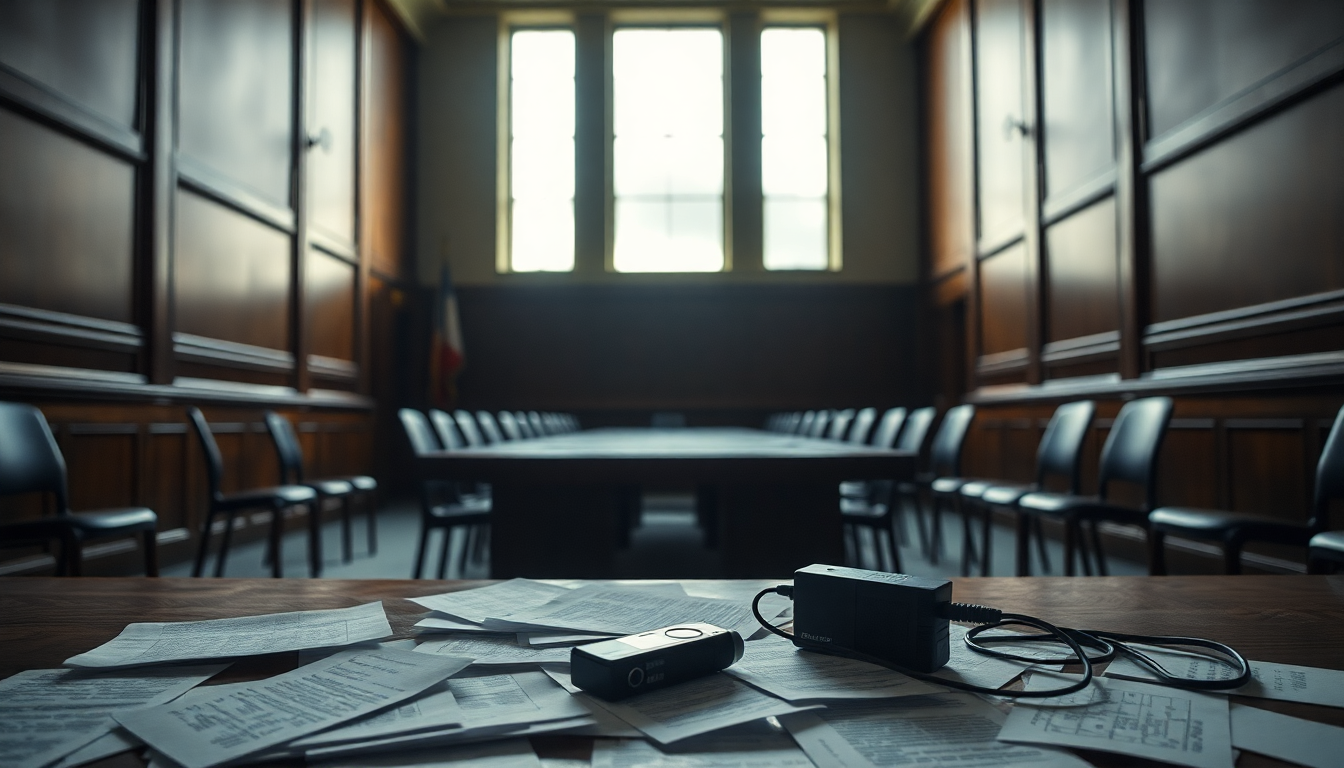Table of Contents
The recent parole hearings for Lyle Menendez stirred up quite a buzz, especially after an unexpected leak of audio from his brother Erik Menendez‘s hearing. This incident not only created a stir in the hearing room but also raised serious questions about privacy and the legal processes surrounding these high-profile cases.
The emotional outcry from family members highlights the complex and painful realities of legal proceedings that have captivated public attention for decades. Have you ever wondered how such a situation could unfold in a courtroom?
Details of the Parole Hearing
As Lyle Menendez’s parole hearing wrapped up, a recording of Erik’s own hearing became public due to a records request. This audio detailed the tragic events of 1989 that led to the deaths of their parents, Jose and Kitty Menendez.
The immediate backlash from family members present was palpable, with Tiffani Lucero Pastor expressing her outrage at the parole board for what she saw as a violation of privacy and trust. It’s a powerful reminder of how deeply the Menendez family continues to grapple with the legacy of a horrific crime that has haunted them for years.
During Erik’s hearing, he shared some gut-wrenching insights into that fateful night, revealing the fears and rage that pushed him to act. He described his father as a direct threat, leading to the tragic series of events that followed.
Erik’s emotional testimony, including reflections on family dynamics, has reignited discussions about the psychological factors that shaped their lives. Can you imagine the weight of reliving such traumatic experiences?
Reactions and Legal Implications
The reaction to the audio leak was swift and severe, with parole attorney Heidi Rummel—who represents both brothers—condemning the board for breaching protocol.
She highlighted the emotional distress it caused the Menendez family. Rummel’s claim that the hearing was compromised raises significant concerns about the integrity of the parole process, especially when sensitive information is involved.
Commissioner Robert Barton pointed to multiple violations from Erik’s past as reasons for denying his parole eligibility, despite Rummel arguing that both brothers have shown considerable rehabilitation over the years. This denial underscores the ongoing hurdles they face in their quest for freedom, as the legal system wades through the complexities of their cases, all under public scrutiny. Isn’t it interesting how past actions can continue to shape one’s future, even decades later?
The Broader Context of the Menendez Case
The Menendez brothers have been at the center of sensational media coverage since their trials in the 1990s. Their story has sparked debates about justice, mental health, and the lasting impact of childhood trauma. Recently, renewed interest—especially after a Netflix documentary—has put them back in the spotlight, with calls for a reevaluation of their sentences based on new evidence of abuse. What does this say about our society’s understanding of justice?
Former District Attorney George Gascón has formally moved to resentence the brothers, reflecting a shift in perspective regarding their case. However, with the new DA, Nathan Hochman, seemingly adopting a tougher approach, the path to freedom for the Menendez brothers looks increasingly challenging. They continue to seek a new trial, but the outcomes of the recent hearings suggest that their fight for justice is far from over. Will they ever truly find peace?
Future Considerations
As the Menendez brothers remain behind bars, their advocates are left to ponder the implications of these recent proceedings. The possibility of clemency from Governor Newsom offers a glimmer of hope, yet the political landscape surrounding this case is anything but predictable. The Menendez saga reveals the intricate complexities of the American legal system, especially in cases intertwined with trauma and media spectacle.
The emotional scars of the past continue to cast a long shadow over both the victims’ family and the Menendez brothers as they navigate a system that often seems indifferent to their plight. The ongoing discussions about their case remind us of the need for a deeper understanding of justice, rehabilitation, and the profound effects of childhood experiences on adult behavior. Isn’t it crucial to consider how the past shapes our present and future?





